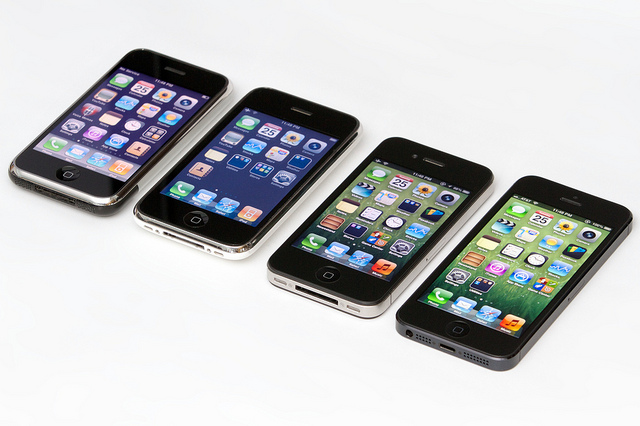
In March 2011, Apple sued Motorola Mobility in US District Court in Wisconsin, alleging that Motorola violated its commitments to standards bodies by trying to charge unreasonably high rates in exchange for patent licenses. The case was scheduled to reach trial today, but instead it was dismissed with prejudice by Judge Barbara Crabb. The dismissal leaves unresolved the question of whether Motorola's demand for 2.25 percent of the price of each iPhone is excessive.
Motorola, which was bought by Google after this case began, owns various patents related to cellular and Wi-Fi standards, which it is obligated to license to competitors under fair, reasonable, and non-discriminatory terms (FRAND). Apple isn't alone in thinking Motorola and its owner are being unreasonable by demanding rates as high as 2.25 percent. Microsoft has sued Motorola over this very issue, and the Federal Trade Commission staff is recommending a lawsuit against Google over misuse of standards-essential patents.
But how big or small a FRAND rate should be has never been properly defined. Apple sued Motorola in the hopes that a court will define a rate that it likes. Yet Apple has said it may not be willing to abide by whatever rate the court suggests is fair. (Much of the background for this case, Apple v. Motorola Mobility, is available at Groklaw.)
"It has become clear that Apple’s interest in a license is qualified," Judge Crabb wrote in an order Friday (PDF). "In its response to Motorola’s motion for clarification on the specific performance issue, Apple states that it will not commit to be bound by any FRAND rate determined by the court and will not agree to accept any license from Motorola unless the court sets a rate of $1 or less for each Apple phone. In other words, if Apple is unsatisfied with the rate chosen by the court, it 'reserves the right to refuse and proceed to further infringement litigation.'"
The judge went on to say that Apple's inflexibility on this issue might make the trial pointless to hold. The sides were given a further chance to respond, and Apple used that chance to show some willingness to compromise (PDF). Apple asked yesterday that "the trial proceed as planned starting tomorrow with the understanding that the Court will set a FRAND rate according to a methodology that both Apple and Motorola will agree to be bound by, thus effectively eliminating the disputes between the parties as to their standard essential patents." Apple asked for conditions including that "the license in both directions be worldwide" and that "both parties preserve their rights to appeal the Court’s ruling, such that both parties’ payment obligations would begin after such appeals are concluded."
This gesture was not enough to keep the trial going. According to a new court document, the result of a hearing today was that the "court finds that case can not proceed to trial on remaining issue; case dismissed with prejudice."
We don't know what was actually said at today's hearing. But Motorola owner Google applauded the ruling, telling Dow Jones "We're pleased that the court has dismissed Apple's lawsuit with prejudice. Motorola has long offered licensing to our extensive patent portfolio at a reasonable and non-discriminatory rate in line with industry standards. We remain interested in reaching an agreement with Apple."
As we noted, Apple isn't the only company that claims Motorola's licensing demands are too high for patents that are part of industry standards. Microsoft filed a similar lawsuit against Motorola in US District Court in Seattle, regarding licensing fees for wireless and video patents Motorola wants for each sale of an Xbox 360 or Windows PC. That trial begins Nov. 13, and as currently planned the judge will set a "range and rate" to define a fair license fee for Motorola's standards-essential patents.
reader comments
195